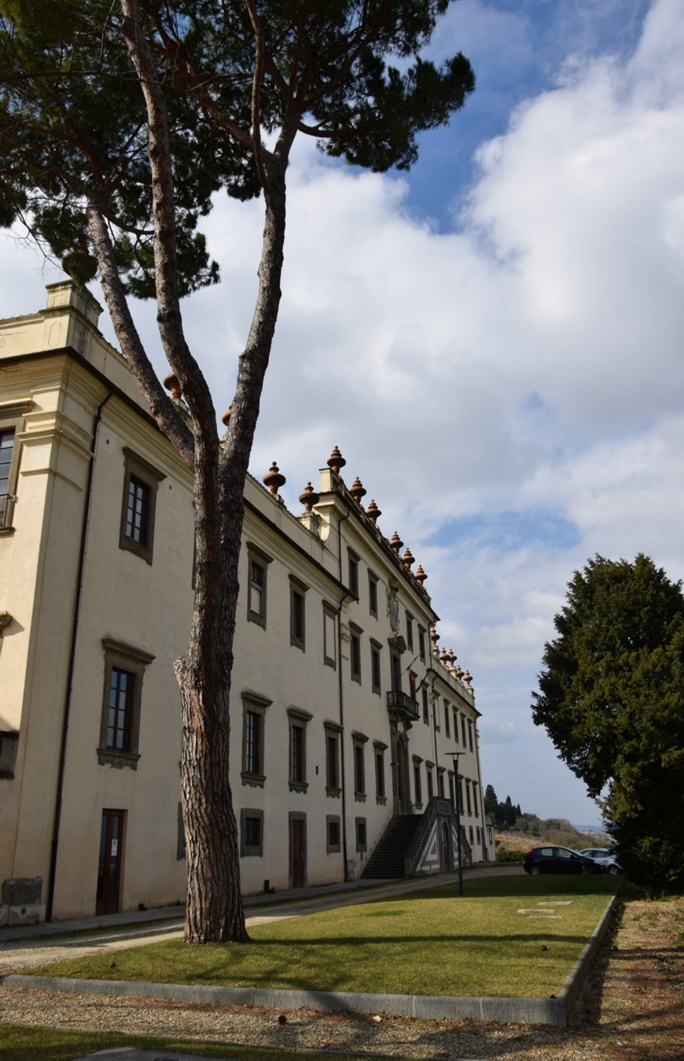
In accordance with the principles of judicial independence, freedom of research and teaching, and good administration of justice – as set out in the Constitution of the Republic of Italy – the School for the Judiciary, established by Legislative Decree 30 January 2006, n. 26, ensures the implementation of the right to, and duty of, professional training of members of the judiciary. The School also performs other tasks in the areas of training and research, as provided for by the law and the School’s own charter.
The School is an independent entity with legal personality under public and private law, as well as full capacity vis-à-vis organisational, functioning, management, contractual and accounting aspects of its activity. The charter of the School – which represents the expression of its autonomy – was adopted on February 6, 2012.
The School is the sole agency competent with regard to professional training of the judiciary. It is responsible, in particular, for:
- Organisation of training initiatives for judges and prosecutors and, when required, for other legal practitioners;
- Initial and in-service training of honorary judges and prosecutors;
- Organisation of training courses for judges and prosecutors who apply for the conferral of chief positions in first and second instance courts and prosecution offices;
- Training of judges and prosecutors holding positions as chairs in courts and chambers as well as similar positions in prosecution offices;
- Training of judges and prosecutors serving as trainers;
- Decentralized training activities;
- Cooperating in activities connected with initial training of judges and prosecutors, within the guidelines formulated by the High Council for the Judiciary and taking into account proposals by the local judicial councils;
- Training in Italy, at the request of competent self-government bodies, of foreign judges and prosecutors participating in training initiatives taking place within the European Judicial Training Network, as well as projects of the European Union and other States’ or international institutions, and implementation of programmes of the Ministry of Foreign Affairs as well as coordination of training activities aimed at Italian judges and prosecutors organised by other States or international institutions, targeting the organisation and functioning of the judicial system;
- Partnerships, at the request of competent self-government bodies, in activities relating to the organization and functioning of the judicial system in other countries;
- Conducting training programmes in collaboration with similar structures of foreign States or professional associations;
- Publication of research and studies in the areas relating to training;
- Organisation of activities and cultural exchanges, meetings and research, in relation to training;
- Organisation, on the basis of specific agreements or conventions, of seminars for legal practitioners or young lawyers enrolled in lawyers’ specialisation courses.
In adopting or amending its annual training programme, the School takes account of the guidelines regarding judicial training it receives from the High Council for the Judiciary (CSM) and the Minister of Justice, as well as the proposals it receives from the National Bar Council and the National University Council. To achieve the above goals, the School may conclude agreements or memoranda of understanding with other public or private entities.
The use of new technologies in training has become a critical aspect that all training institutions need to address in order to seize the related opportunities. The recommendations given to training institutions in the European Commission’s Communication, Ensuring justice in the EU – a European judicial training strategy for 2021-2024 – COM(2020) 713 final, include:
(a) to offer interactive, practical, and accessible e-learning that is aligned with training objectives;
(b) to explore further the potential of modern techniques, such as e-learning and extended reality solutions;
(c) to make greater use of online training ‘pills’ (short, up-to-date, tailored) to meet the immediate needs of judicial officers in the context of an actual case;
(d) to ensure that trainers are fully prepared to exploit the potential of e-learning methodologies.
In the past, the only distance learning tools were e-learning courses, sometimes carried out using a mixed modality (a ‘face-to-face’ initial or final meeting alongside an online part, generally available on a didactic platform such as Moodle) which, for the online component, consisted of brief interactions, possibly limited to brief discussions, simultaneous or not, with the trainers in charge of tutoring, rarely in web-conferences, preferably via chat, or checks carried out via asynchronous dialogue. The health emergency has prompted a revolution in training tools, leading, on the one hand, to the creation of virtual classes, relying on e-learning, i.e., contextual teaching conducted on the web (webinars, video seminars, or virtual seminars), involving people located in different places who can interact with the speaker and the other participants by using video-conference working facilities, and, on the other hand, to the launch of live events with a potentially high number of participants whose interactions are limited to chat messaging.
Besides online courses with virtual classes, the SSM created its own YouTube channel, with sessions selected from its catalogue and thematic podcasts on legal research, and a Twitter channel for instant communication related to the main events.
For further information:
Ten years of the Italian School for the Judiciary (2011-2021)
